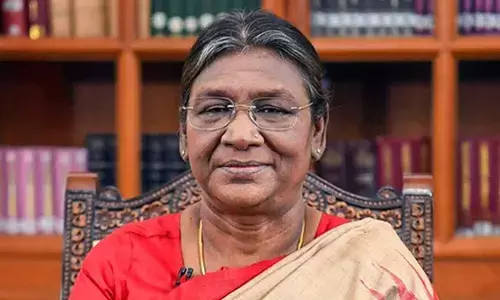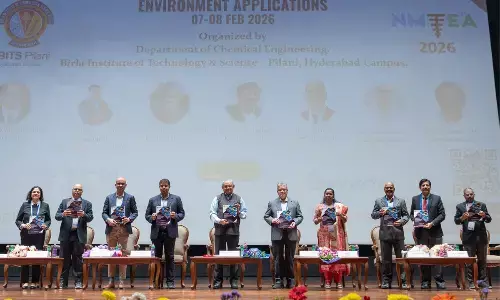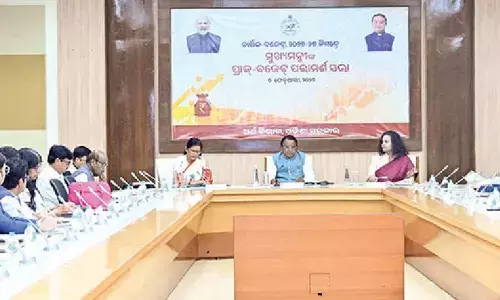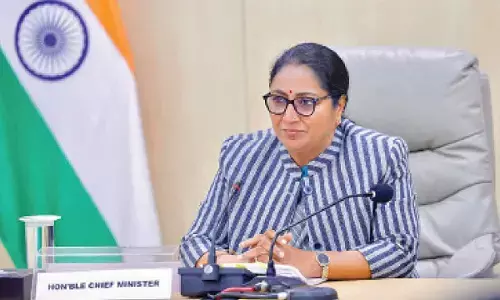Best options to invest for children's education needs

Despite improving domestic conditions, good quality higher education is still limited in India
Children's education has always remained an important need, also an emotional one, at times taking top priority amongst all other needs. Many times, it features above their own retirement needs. The price of better education is high, and when the aspirations of the parents are to ensure the best of the possibilities for their children, then the costs go manifold. In recent years, the cost of education has been on a higher trajectory much above the general inflation.
The cost of education, unlike many other costs, wouldn't raise on a yearly basis but every few years the price rise is higher than the cumulative inflation. If the long-term inflation is about 5-6 per cent, then one could assume of double that figure to achieve a matching cost at the time of requirement. This is one aspect many investors fail and the traditional way of preparing for such an expense would debilitate the entire planning.
What traditionally people have considered is by opting for insurance products, real estate investment sometimes as early as at time of birth, mostly as a gift to by the grandparents, close relatives, etc. The other approach is through exposure to equity by either passive or direct. Here, opting for unit-linked insurance plans (ULIP), mutual fund (MF) or specific/portfolio of stocks. This method is a better approach than the traditional where one could invest in pieces over a long period of time and create a decent corpus.
Despite improving domestic conditions, the quality of higher education is still limited and is highly competitive. The number of such institutes are limited while the demand is way higher. This is another reason for students pursuing international studies. Of course, the exposure to another culture and country are added benefit in the globalized world. When one considers the higher education, particularly undergraduate and postgraduate programs of favorite destinations, then the costs are of much higher.
Then there's a foreign exchange angle to our Indian rupee. So, it's not just the inflationary impact but the currency arbitrage has to be considered when planning for international education costs. This is seldom considered by both the parents and the planners which could upset the corpus plans. The other way to get around this is to have international exposure if not entirety of the corpus generation but at least a part, a recognizable part to the corpus build-up.
This could be achieved by investing in MF or other modes of international equity. In MF options, we've funds which are feeder i.e., collect Indian money and invest in a larger fund which is listed/traded internationally. There're options where they invest directly in stocks listed in the foreign bourses and then those which invest in the ETF listed abroad. The choice depends upon the risk appetite of the investor and the comfort of exposure to the overseas investments.
In any of these options, the investment is still made in Indian Rupees (INR) and the redemption proceeds are in INR only. So, even if my requirement is in for instance, US Dollars (USD), I still must get them converted to USD before utilizing for my need. This where Kristal.AI has a role to play. It's a platform through which investors across the geography could invest in stocks, exchange traded funds (ETF) and even in unlisted companies (only if one is registered as an accredited investor) across the world markets. This platform brings the fractional investment opportunities for investors in India, Singapore, Middle East or elsewhere to investments across the world.
A mix of conventional investments (mentioned earlier) and revolutionary (Kristal.AI) could assist in achieving the children's overseas education needs. The standalone ETF investmentis per unit basis which could be very affordable at a minimum of about $100. The flexible nature of the investment allows investors to invest conveniently on a monthly, quarterly, semi-annual, annual basis or even at a non-periodic ad-hoc basis.
(The author is a co-founder of "Wealocity", a wealth management firm and could be reachedat [email protected])
















